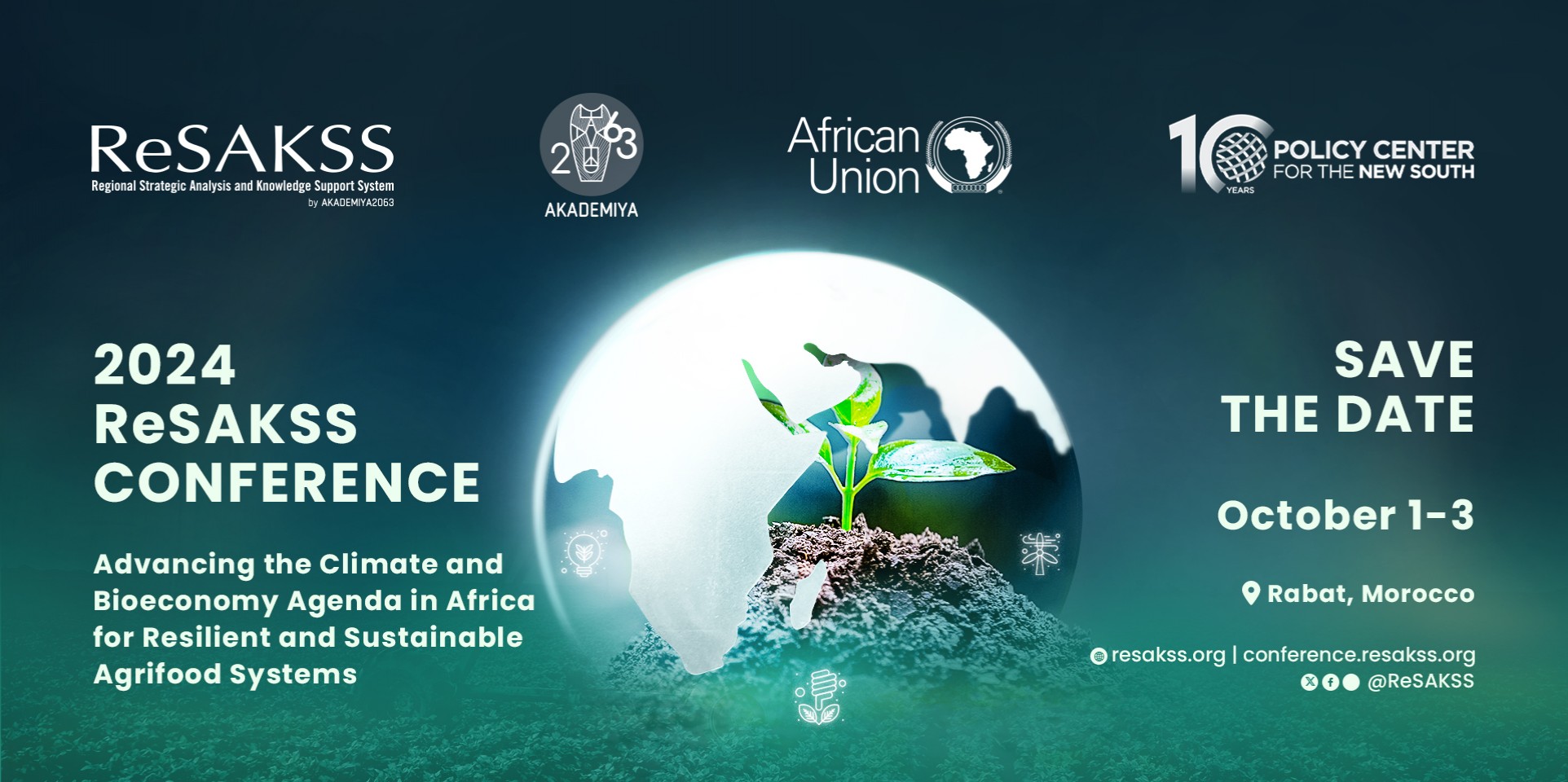AKADEMIYA2063, in partnership with the African Union Commission's Department of Agriculture, Rural Development, Blue Economy and Sustainable Environment (AUC-DARBE), is convening the 2024 ReSAKSS Conference to launch the 16th Edition of the ATOR. Organized in cooperation with the Policy Center for the New South (PCNS), the in-person event will take place on October 1-3 under the theme “Advancing the Climate and Bioeconomy Agenda in Africa for Resilient and Sustainable Agrifood Systems”.
The conference will take stock of Africa’s climate change and bioeconomy agendas and discuss countries’ implementation strategies under the frameworks of the Paris Agreement, COP28, and the broader continental climate agendas. As the centerpiece of the thematic discussions, the 2024 ATOR will take a deep dive into a selection of key strategic topics at the intersection of climate change and food systems, including bioeconomy, climate finance, renewable energy, and the Global Green Agenda. The research will examine country-, regional-, and continental-level interventions by profiling the key drivers and showcasing documented good practices and policy innovations needed to foster renewable energy in Africa.
Objectives:
- Discuss the research evidence and recommendations presented in the 2024 ATOR on trends in adaptation and mitigation options in African agriculture;
- Examine advances in greenhouse gas (GHG) emission tracking;
- Discuss bioeconomy opportunities for African economies, including from the perspective of regional cooperation and integration to enhance the bioeconomy potential in Africa;
- Document and share best practices and lessons learned from bioeconomy initiatives and projects in Africa and elsewhere to foster inclusive and equitable growth, job creation and rural development in Africa;
- Review the climate finance and bioeconomy agendas in Africa as an avenue to remove a major constraint for many African countries to accelerate progress in climate adaptation, food safety, and other key food systems issues;
- Assess the status of CAADP implementation and progress toward achieving key goals and targets.

